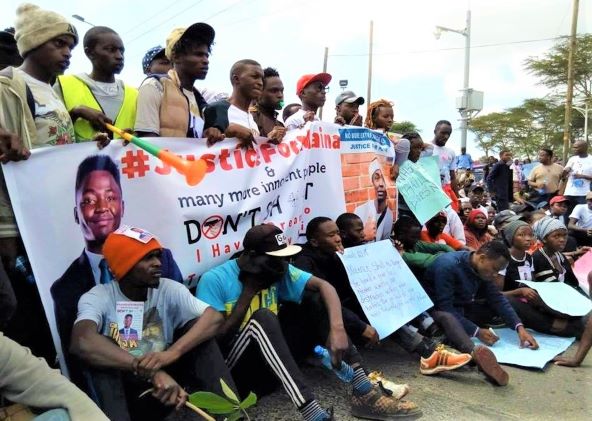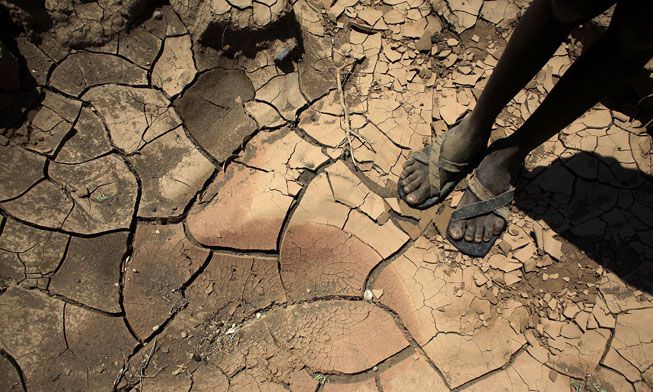By Sarah Nyakio
Next year, Kenya human rights record will come under scrutiny in a review carried out by the Human Rights Council. The Universal Periodic Review (UPR) is a unique process which involves a periodic review of the human rights records of all 193 UN Member States. The member states declare what engagements they have taken to improve the human rights situations in their countries and to overcome challenges to the enjoyment of human rights. The UPR is currently at the beginning of the third cycle with many East Africa Community region countries specifically, Kenya will be reviewed early next year (January-February 2020).
Kenya’ UPR comes at a pivotal moment when the country is on the spot for extrajudicial killings. According to IMLU statistics, cases of extrajudicial killings committed particularly in the context of law enforcement remain high in Kenya. In the period January 2015 to August 2017, the Independent Medico-Legal Unit (IMLU)has recorded a total of 406 cases of extrajudicial killings that have occurred in the country. In 2017, Kenyan security forces were on the spotlight for violently suppressing the rights of those who were protesting contentious elections.
Accountability for Extrajudicial Killings
In 2015 review, Kenya promised to ensure accountability of its security forces and timely processing of the request from the Special Rapporteur on extrajudicial killings, including measures to prevent abuses and investigate and prosecute violations. They also promised to fully investigate and prosecute cases of extrajudicial killings however the Independent Policing Oversight Authority (IPOA) has only managed to have three police officers convicted over six years since its inception. This is despite having fully finalized investigating over 1,000 cases and closing a total of 9,878 cases received during its first term.
The rate of investigating and prosecuting cases of extrajudicial killings has been minimal hence entrenching a culture of impunity within the security agencies. The good news is that in 2017 the Prevention of Torture and the National Coroner’s Service Bills was enacted into law but the Attorney General is yet to expedite the operationalization of the Coroners Service Act to ensure that extrajudicial killings are properly investigated to enhance police accountability.
Truth, Justice and Reconciliation
In its second UPR review in 2015, Kenya accepted to implement the Truth, Justice and Reconciliation Commission (TJRC) report and resettle Internally Displaced Persons and address their economic, social and cultural rights. Unfortunately, six years since the report of the non-operational TJRC was tabled in Parliament, members of parliament (MPs) have yet to consider it.
In 2015, President Kenyatta announced a Sh 10 billion Restorative Justice Fund for victims of the 2007 post-election violence. However, steps towards realizing the President’s promises have not been put in place. The Draft National IDP Policy is yet to be adopted.
Kenya is also yet to ratify the African Union Convention for the Protection and Assistance of Internally Displaced Persons in Africa (Kampala Convention).
Forced Evictions
In 2015, Kenya accepted recommendations to take all necessary measures to provide individuals that are under threat of being forcibly evicted with full protection against forced eviction in line with international obligations and commitments including the Basic Principles and Guidelines on Development Based evictions and displacements.
The State has tactlessly violated the international standards concerning forced evictions as was witnessed in July 2018 during the evictions of residents in Kibera slums to create room for the construction of the Kibera Link Road. The Eviction and Resettlement Bill was shot down in Parliament and instead the MPs passed the Land Laws (Amendment) Act, 2016 which is silent on the UN Basic Principles and Guidelines on Evictions and Displacement of Communities and Groups.
In 2018, a report by Amnesty International Kenya christened “Families Torn Apart” found that Kenya Forest Service officers used excessive force against members of the Sengwer, an indigenous community in the Rift Valley region. Authorities forcefully evicted them from Embobut forest in late 2017 to preserve the Mau water catchment area.
The report reveals that widespread, sometimes deadly force, has been used against the Sengwer people, and highlights significant flaws in the decision-making process that has been used to justify the forced evictions.
With only five months to 2020, the UPR offers Kenya an opportunity to critically scrutinize the true state of human rights in the country in the last five years. The UPR is also a chance for CSOs to enhance their capacity to deal effectively with human rights challenges and to share best practices in the field of human rights among States and other stakeholders.










